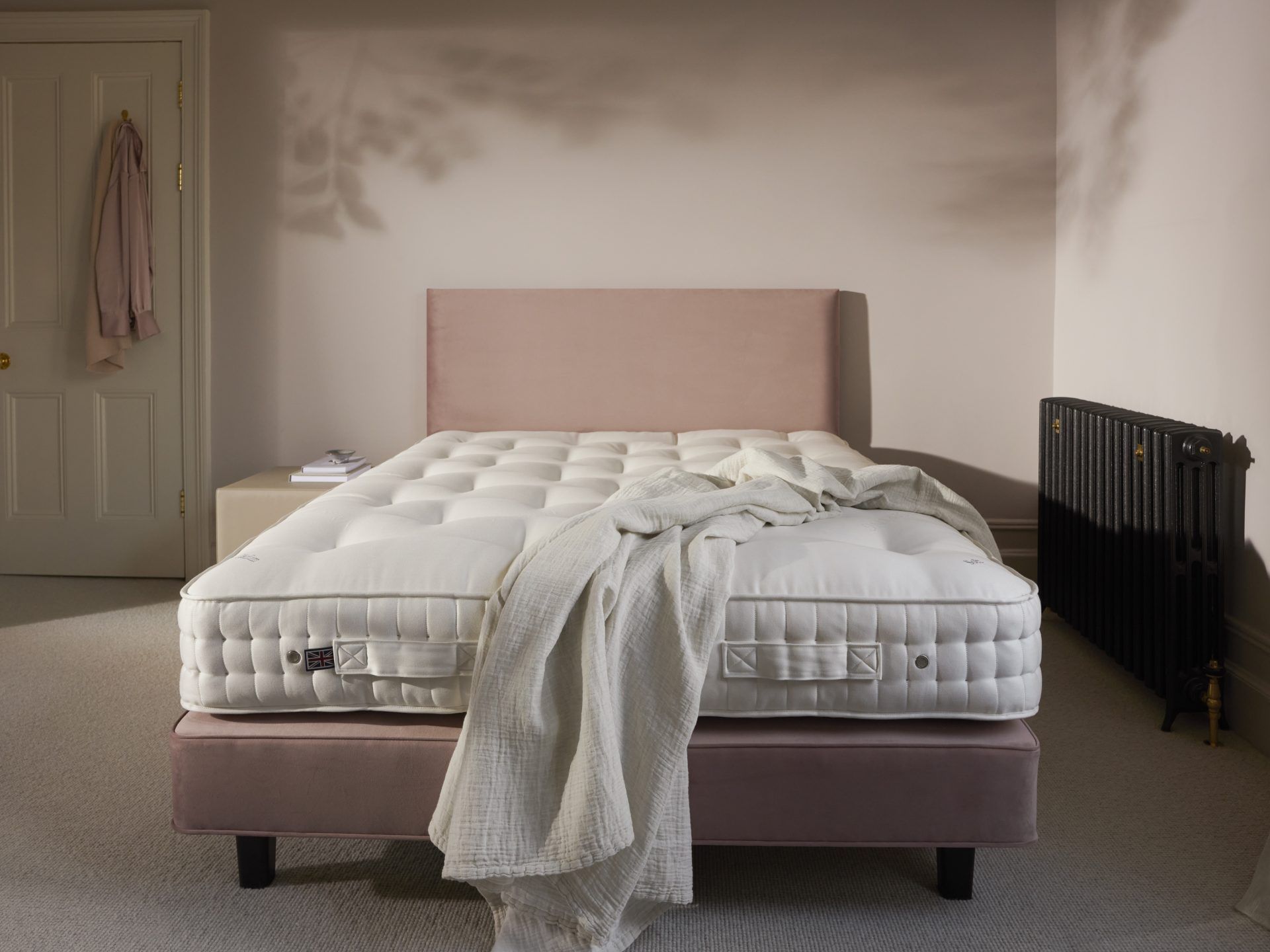
Royal-Pedic Premier Natural 3" Pillowtop Pad
Price: $2,571.00
View Product
Naturally Organic Hudson Cotton Mattress Protector
Price: $189.00
View Product
Vispring Elite Mattress
Price: $10,500.00
View ProductIn today's world, where health and sustainability are paramount, organic mattress toppers present a compelling choice for consumers. Made from natural materials, these toppers not only enhance comfort but also contribute to a healthier sleep environment. This article will delve into how organic mattress toppers can help regulate temperature, reduce allergens, and provide superior support for a restful night's sleep.
As awareness about the materials we use in our daily lives grows, more consumers are turning towards organic products, especially when it comes to bedding. Organic mattress toppers, made from materials such as organic cotton, wool, and latex, are gaining popularity for their health benefits and eco-friendly attributes. Not only do they improve sleep quality, but they also help individuals avoid harmful chemicals commonly found in conventional bedding products.
One of the most significant advantages of using organic mattress toppers is the improvement in sleep quality. Organic materials, such as natural latex, provide a breathable surface that helps to regulate body temperature throughout the night. This is particularly beneficial for individuals who tend to sleep hot, as the natural properties of organic materials allow for better airflow and moisture-wicking capabilities.
For allergy sufferers, organic mattress toppers offer a safer sleeping environment. Many conventional mattress toppers are treated with chemicals that can exacerbate allergies or sensitivities. Organic options, such as those made from wool, are naturally resistant to dust mites and mold, providing a healthier sleep space. By choosing an organic mattress topper, individuals can reduce their exposure to allergens that might otherwise disrupt their sleep.
In an age where sustainability is a growing concern, organic mattress toppers represent a responsible choice. Made from sustainably sourced materials, these toppers often adhere to strict environmental standards, such as GOTS (Global Organic Textile Standard) certification. This ensures that the production process minimizes harm to the environment while providing consumers with a high-quality product.
Among the many organic mattress toppers available, a few stand out due to their exceptional quality and environmental commitment.
You can experience a great night of sleep every night with the Naturepedic Azure hybrid organic mattress. This mattress is part of Naturepedic's exclusive Halcyon collection, made from only the finest organic, luxury, and non-toxic materials. Each mattress is customizable to provide flexibility over time and individual tailoring to each sleeper's needs.
Price: $4,199.00
View ProductThis wool pad from Suite Sleep is covered in organic cotton on both the top and bottom and filled with super-washed natural wool. It provides a plush cushioning feel on the top of your mattress. This mattress protector features an organic cotton fitted style with 18" pockets, offers excellent mattress protection and stretches to fit your luxurious organic mattress.
Price: $319.00
View ProductThroughout history, the quest for a good night's sleep has been a constant endeavor for many. Notable figures have addressed the importance of sleep and comfort in various ways:
The father of medicine, Hippocrates, emphasized the importance of a balanced lifestyle, which included adequate rest and sleep. His teachings laid the groundwork for understanding how physical comfort and mental wellness are interconnected, a concept that resonates with the modern pursuit of organic sleep solutions.
A pioneering nurse, Florence Nightingale advocated for clean, comfortable environments for patients to recover. Her emphasis on hygiene and comfort in healthcare settings highlighted the need for quality bedding, a principle that continues to influence the design of organic mattresses today.
Often referred to as the "father of sleep medicine," Dr. Dement's research in the latter half of the 20th century focused on the significance of sleep cycles and the impact of sleep disorders on health. His work has influenced modern approaches to sleep hygiene, including the use of organic materials for better sleep quality.
Organic mattress toppers are not just a trend; they represent a significant shift towards prioritizing health and environmental sustainability in our everyday lives. By choosing organic, individuals can enjoy improved sleep quality, reduce allergens, and contribute positively to the planet. Whether through luxurious products like the Naturepedic Azure Hybrid Organic Mattress or the Suite Sleep Washable Wool Mattress Pad, the transition to organic bedding is a step towards a more restful and health-conscious lifestyle.

Price: $2,571.00
View Product
Price: $189.00
View Product
Price: $10,500.00
View Product